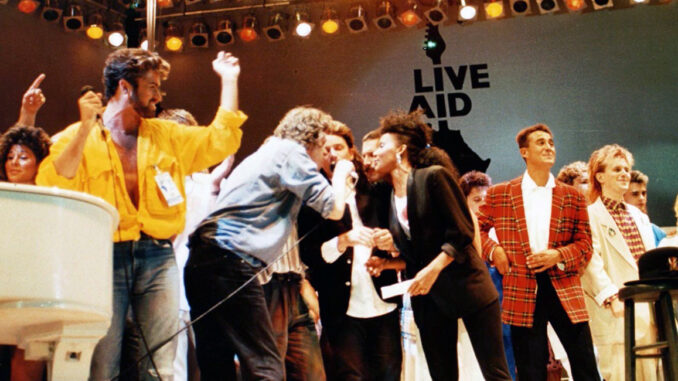
“This Week” looks back at the key events from this week in history
July 11
1798: The U.S. Marine Corps was formally reestablished by a congressional act that created the U.S. Marine Band.
1804: Vice President Aaron Burr mortally wounded former Treasury Secretary Alexander Hamilton during a pistol duel in Weehawken, New Jersey. Hamilton died the next day.
1859: Big Ben, the great bell inside the famous London clock tower, chimed for the first time.
1914: Babe Ruth made his major league baseball debut, pitching the Boston Red Sox to a 4-3 victory over Cleveland.
1960: Harper Lee’s novel “To Kill a Mockingbird” was published.
July 12
1543: England’s King Henry VIII married his sixth and final wife, Catherine Parr.
1862: President Abraham Lincoln signed a bill authorizing the Army Medal of Honor during the Civil War.
1962: The Rolling Stones played their first show at the Marquee Club in London.
July 13
1923: A sign consisting of 50-foot-tall letters spelling out “HOLLYWOODLAND” was dedicated in the Hollywood Hills to promote a subdivision (the last four letters were removed in 1949).
1985: The Live Aid benefit rock concerts were held simultaneously in London and Philadelphia, raising millions for famine relief in Ethiopia.
July 14
1789: Known as Bastille Day, symbolizing the start of the French Revolution, citizens of Paris stormed the Bastille prison and released the seven prisoners inside.
1798: Congress passed the Sedition Act, making it a federal crime to publish false, scandalous or malicious writing about the United States government.
1881: Outlaw William H. Bonney Jr., alias Billy the Kid, was shot and killed by Sheriff Pat Garrett in Fort Sumner in present-day New Mexico.
1945: Italy formally declared war on Japan, its former Axis partner during World War II.
July 15
1799: The Rosetta Stone, a key to deciphering ancient Egyptian scripts, was found at Fort Julien in the Nile Delta during the Napoleonic campaign in Egypt.
1834: The Spanish Inquisition was abolished more than 350 years after its creation.
1916: The Boeing Company, originally known as Pacific Aero Products Co., was founded in Seattle.
1997: Fashion designer Gianni Versace, 50, was shot dead outside his Miami Beach home by suspected gunman Andrew Phillip Cunanan.
2006: Twitter (now known as X) was launched publicly.
July 16
1945: The United States exploded its first experimental atomic bomb in the desert of Alamogordo, New Mexico.
1790: A site along the Potomac River was designated the permanent seat of the United States government; the area became Washington, D.C.
1862: Flag Officer David G. Farragut became the first rear admiral in the United States Navy.
1951: J.D. Salinger’s novel “The Catcher in the Rye” was first published by Little, Brown and Co.
1969: Apollo 11 launched from Cape Kennedy in Florida on the first manned mission to the moon’s surface.
July 17
1955: Disneyland opened in Anaheim, California, after its $17 million, yearlong construction; the park drew a million visitors in its first 10 weeks.
1902: Willis Carrier produced designs for the world’s first modern air-conditioning system.
1918: Russia’s Czar Nicholas II and his family were executed by the Bolsheviks.
